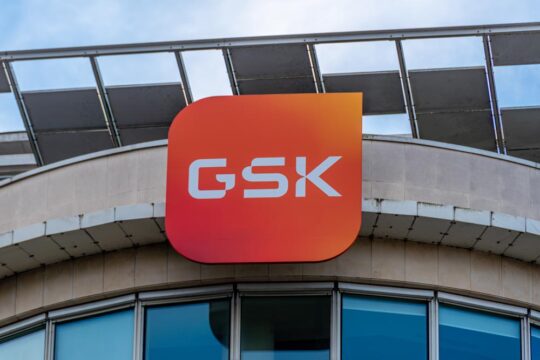Advertisment
EAHP 2012 Report – Two surveys examining the role of NHS Consultant Pharmacists in the UK
by Zara Qadir – The role of consultant pharmacist was introduced seven years ago by the National Health Service (NHS) in the UK, with the intention of improving patient care and with the aim of retaining experienced pharmacists in clinical practice1. At the EAHP conference in Milan, Philip Howard, a Consultant Pharmacist in Microbials at Leeds Teaching Hospital and Chair Consultant of the UK Pharmacist Group, showcased two posters based on surveys that examined the important role and current status that consultant pharmacists play within the NHS.
Survey 1: Assessing consultant pharmacists’ current activities after six years
“We surveyed 42 consultant pharmacists in England. The aim of our first survey was to find out what range of activities were being undertaken by the NHS consultant pharmacists in England, as well as how long they had been in post and to investigate their future aspirations,” explained Mr. Howard.
In March 2011, forty-one consultant pharmacists completed and returned a questionnaire, which had been adapted from the NHS North West survey2. The survey revealed the average age at appointment to be 40 years old. At the time of the survey, only England had appointments, and there were no posts in Scotland, Northern Ireland or Wales. The survey revealed most consultants work in acute teaching hospitals (68%). A smaller percentage of consultants were working in other areas: 12% were in acute non-teaching capacity, 5% were in mental health, 7% in primary care and 5% in specialist trusts.
Consultant pharmacist posts have specialised responsibilities within clinical practice providing expert practice (about half their time but not necessarily direct patient contact), research, evaluation and service development, as well as education, mentoring and professional development. One of the main motivations for the survey was to find out how consultants were spending their time, and what their specialties were. The results show that on average forty percent of their time was in direct or indirect patient care, 15% was spent providing leadership, with a third of their time shared between commitments in education (10%), research (10%) and practice development (10%). The most common specialties were critical care (n=8) and microbials (n=7).
Seventy eight percent of consultants were classed as professional or a clinical lead with 36% running their own clinic, and 28% having their own caseload. Sixty nine percent were prescribers. Many consultants offered advice to other organisations e.g. NICE advisory board (44%) and the Royal Pharmaceutical Society (42%). Only 42% have a regular commitment to a university, but most are research active and published. Most said it took between 6 months to 2 years to get established in the role, and the majority. Sixty eight percent intend to remain in the post whilst 26% intend to move to a national advisory role.
Mr. Howard concluded that, “Consultant Pharmacists are delivering the four key functions required by the post, and retain experienced pharmacists in clinical practice”. The survey also showed that most people are satisfied with the role. The results from the survey have been submitted as part of the Modernising Pharmacy Careers review.
Survey 2: Consultant Pharmacist Strategy and Performance
The second survey, conducted by Leeds University researchers, aimed to identify what strategies were being adopted by Chief Pharmacists in planning new consultant pharmacist posts at all levels (national and regional), and to establish what the barriers were to appointment, as well as assessing current performance and improvements to current roles.
The survey was well received with feedback from 70% of regional pharmacists and 73 Chief Pharmacists. Nearly half, 44% of regions, had a strategy for the appointment of new posts. Only 23% of Trust Chief Pharmacists had an agreed strategy for future appointments at regional level, 2% at local health economy level and 7% at the Trust level. Both regional and Trust Chief Pharmacists identified a need for a strategy at local level (85% and 58% respectively), regional level: 65% and 50%, and national level 85% and 51%.
The main barriers that prevented future appointments were financial (81%), lack of transitional arrangements (13%), insufficient funding for time at University (37%), and not being aware of benefit over the advanced pharmacists (14%). Over half, 58% would part fund a post if this was enabled. However, 18% were unaware of what the posts can do, and 43% had not been shown what the posts can achieve. The posts that were in the early planning states were in the specialty fields of haemato-oncology, antimicrobials, critical care, renal, medicines safety and nutrition.
The performance review was good for consultant pharmacists. All thought expert practice had been met or exceeded. Only 18% thought leadership was below expectation, 11% for education but 31% wanted more research. Trusts would like to bring more research funding in, whereas regions would like more research published. The survey concluded that ‘Consultant Pharmacists are generally delivering what their employers want”.
However, Howard concluded “that there still needs to be a strategy for planning new posts at regional and national level. There is a call for a unified approach for where we need consultant pharmacists, and that there was a lack of strategy at the moment at regional and national level.” The study suggests summarising the benefits of posts to encourage more appointments.
The Consultant Pharmacists’ Group is writing a report based on the two surveys.
References
1. Guidance for the development of consultant pharmacist post. 2005. London: Department of Health
2. Gavin-Daley A. Ten years on-An evaluation of the Non Medical Consultant Role in the North West. 2010, Working Together Consultancy: Manchester.





